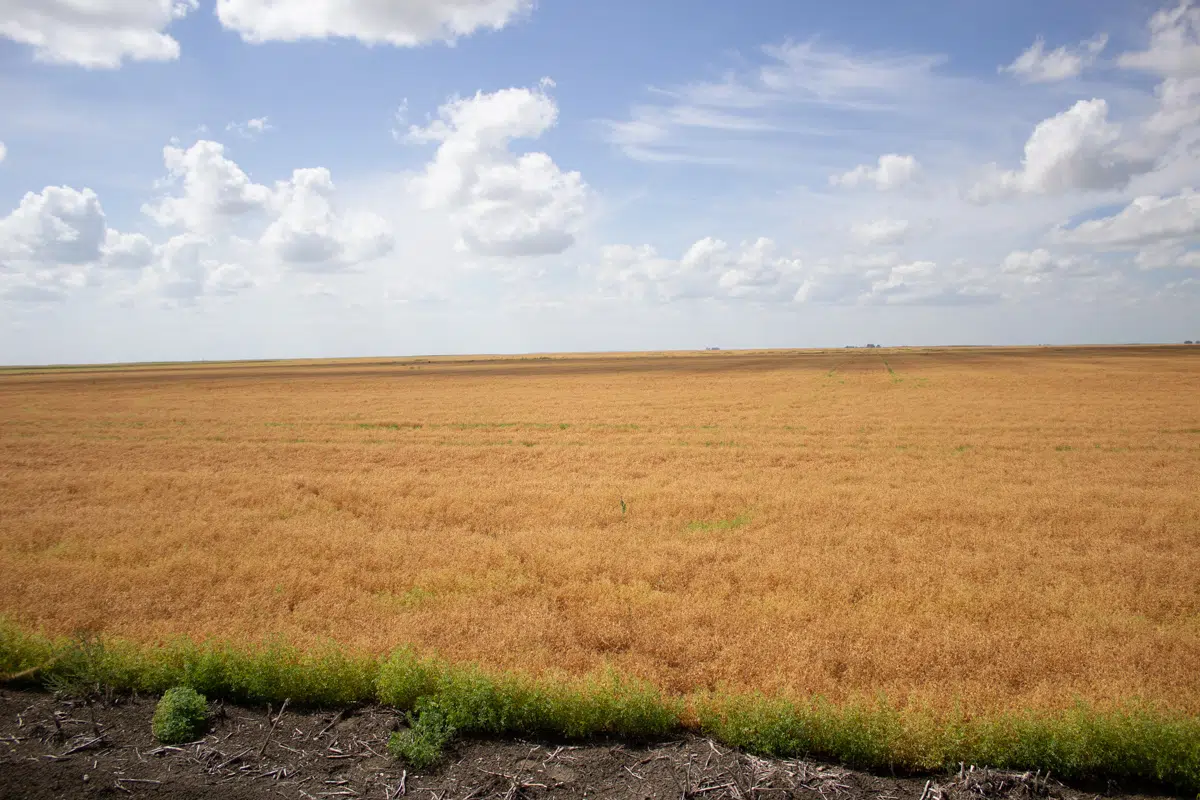After consecutive years in which Saskatchewan’s agricultural exports set records, some experts think it will be challenging to keep up that trend.
Kevin Hursch, an agriculture journalist and farmer, believes extreme weather along with the COVID-19 pandemic caused a dramatic increase in grain prices — resulting in possibly misleading numbers.
“(The record announced Monday) is a little bit of a surprise given that our production was down 40 maybe 45 per cent in grain crops in Saskatchewan in 2021,” Hursch said. “To still break the record for exports is pretty amazing. But some of that hangover of low crop production is going to affect 2022.
“We could indeed see a drop in 2022 just because of the hangover from the drought of 2021.”
Last year’s drought had a huge impact on people’s wallets. In its mid-year financial report released in November, the Government of Saskatchewan announced the largest crop insurance payout the province has ever seen.
Hursch believes people should lower their expectations, at least for the time being.
“There’s no doubt that if we have another shortfall in crops in 2022, we’re going to see a dramatic drop in the volume of exports,” he said. “Unless prices are amazingly high, we’re going to see the value of exports drop as well.
“Following an epic drought, it’s unusual to see production bounce back entirely. So I think most people are pencilling in as they do their estimates that we’re not likely to get back to an average crop that everybody hopes we do. The statistics would suggest that typically you see a less-than-average crop in the following year.”
According to the provincial government, Saskatchewan’s agricultural exports last year were worth $17.5 billion. That broke the record of $16.4 billion set in 2020.
The top commodities exported in 2021 were canola seed, canola oil, non-durum wheat, lentils, durum and dry peas. The leading international market destinations were the United States, China, Japan and Mexico.
Hursch says the latest numbers released from the province show how vital agriculture is for Saskatchewan’s economy now and moving forward.
“I know in some people’s minds, agriculture is sort of the traditional old-time economy and it’s all the new bright and other things that are important,” he said. “But it really highlights the importance of agriculture in the economy when you see statistics like those that have just been released.”











